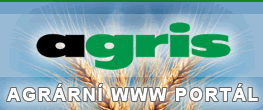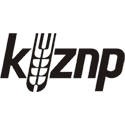The Week in Europe 01-07/12/00
14.12.2000 | Euroskop
Brief news news on enlargement
European Council tackles reforms for enlargement
EU leaders hope to agree reforms to the Union's institutions and decision-making system at a summit in Nice on 7-9 December. Driven by the need to prepare the EU's structures for enlargement, the changes include the allocation of votes in the Council, majority voting, and the size and structure of the Commission. Reforms and the necessary changes to the Treaty have been under negotiation by Member States at an Inter-Governmental Conference, which opened in February. A wide range of other domestic and foreign issues is also on the agenda at the Nice European Council, which brings together heads of state and government of the 15 Member States. See http://europa.eu.int/comm/nice_council/index_en.htm
Progress on football transfers
International rules on football transfers should be able to balance the needs of the sport and the free movement of workers, the Commission believes. On 6 December it welcomed the latest proposals from FIFA, football's international body, as a positive step towards a solution that respects EU law. It recognises the validity of FIFA rules in trying to prevent a club from luring players from a rival during competitions. It acknowledges the importance of stable contracts, protecting young players and promoting training, too. At the same time, FIFA rules are not exempt from EU law and the basic principle of free movement. After receiving several complaints, the Commission set out its objections to the present FIFA transfer system two years ago, seeking to modify it to make it compatible with Community law not to abolish it. Commission officials are due to meet FIFA, UEFA and players' union FIFpro on 13 December in Brussels. [Background text: IP/00/1417]
Bone meal banned from feed
The Agriculture Council on 4 December banned meat and bone meal from animal feed throughout the EU, as of 1 January. It prohibits the feeding of processed animal proteins to farmed animals that are kept, bred or fattened for food production.
The measure is due to run until 30 June 2001, and does not apply to fish meal that is fed to pigs, poultry or fish. Ministers also backed the Commission's proposal to introduce a scheme to buy for destruction cattle over 30 months that have not been tested for BSE (which cannot enter the food chain). Funded 70% by the EU and 30% by Member States, this would pay producers as close as possible to the market price, as a cost-efficient alternative to intervention purchase and storage. [Background text: MEMO/00/101]
On the occasion of his visit to the Czech Republic, Commissioner for Health and Consumer Protection, David Byrne, will be addressing the BSE issue with journalists and NGOs at the EU Information Centre in Prague on 8 December.
The Commission is evaluating five tests for BSE and related diseases. All cattle over 30 months killed in the EU will have to be tested from 1 July next year. [Background text: IP/00/1409]
Internet access surges in EU
A 55% increase in the number of EU households that have access to the Internet has been welcomed by Commissioner Erkki Liikanen. It has been the year of the Internet in Europe, he said, presenting a survey showing that 28% of households had access in October, up from 18% in March. The figures were released with the latest review of progress with the eEurope initiative.
Adopted at the Feira summit in June, this has speeded up key legislation related to information technology, such as the opening-up to competition of the 'local loop' of telecom networks. However, Liikanen also acknowledged the need to improve the security of computer networks and more cooperation with the enlargement countries.
http://europa.eu.int/comm/information_society/eeurope/documentation/update/index_en.htm [Background text: IP/00/1388]
Tougher rules to stop oil spills
A package of measures to combat accidents at sea and resulting pollution was put forward by the Commission on 6 December. Ships in transit off the coast would face stricter notification rules, backed up by a European maritime safety agency. This would help to apply and monitor safety standards, collect information and arrange inspections. In addition, an oil pollution fund would provide compensation up to 1bn euro in the case of damage much higher than the 200m euro international limit agreed in the 1970s. It would be financed by oil importers. [Background text: IP/00/1412]
'Cuts in fish quotas inevitable'
Drastic cuts in fish quotas next year have been proposed by the Commission for some species, to safeguard stocks and help them to recover. There is no way round it, explained Commissioner Franz Fischler: to have an industry we need fish, and fishermen have been unable to catch their cod quotas this year. For stocks linked to and caught with the species most at risk, the Commission is also proposing a decrease in catches. Catch quotas for pelagic species, such as herring and mackerel, and those that support industrial fisheries, such as sandeel, blue whiting and some sprat stocks, would generally remain unchanged. The Commission is proposing technical measures, too, which include a summer ban on fishing Baltic cod and raising the minimum landing size for plaice. For the first time, it is also proposing quotas on some deep-water species, which are slow-growing and vulnerable. Finally, the Commission has also been discussing with industry representatives a range of measures to help rebuild the most depleted stocks. Square-meshed panels in nets can facilitate the escape of immature fish, for example, and 'nursery areas' closed to fishing to protect spawning and young fish. [Background text: IP/00/1396]
Law on state aid simplified
Member States can give aid to companies without seeking approval from the Commission, subject to certain conditions, under EU rules adopted on 6 December. Three Regulations exempt state aid from the usual notification procedures in the case of small and medium-sized enterprises (SMEs), training aid, and grants below 100,000 euro. State aid is generally restricted under EU law because in some cases it distorts competition. SMEs and training aid are two areas in which the Commission and Member States have sufficient experience to define criteria for exemptions. They include, for example, thresholds of 250 employees and 40m euro annual turnover for medium-sized enterprises, and limits on the volume of aid according to the aims and region concerned.
For training, the aid limit is 25% of eligible costs for training specific to the current workplace and 50% for more general training. These rise by 10-20% for SMEs, 5-10% in poorer regions and 10% for types of disadvantaged workers. The third Regulation codifies the threshold below which grants are not considered as state aid, because they do not threaten to distort competition or affect trade between Member States. This rule does not exclude recipients from support under other approved aid schemes, but does not cover agriculture, fisheries or transport. The changes will free up resources for more serious cases.
Enlargement news
Trip to Nice for Zeman
Czech Prime Minister Milos Zeman goes to the European Conference in Nice on December 7, “because it would be impolite not to go". But on November 29 he made clear that he is not anticipating a lot of outturn from the meeting.
Zeman rejects any suggestion that his minority government has run out of steam to complete reform and steer the country through to EU membership. Aside from the continuing pursuit of sustainable economic recovery, the only remaining problems he perceives are in terms of environment ("and that's just a question of cost"), and the fight against large-scale economic crime ("our toughest problem" - even though it is no worse than in other candidates, and "just perceived as being worse"). These issues, he says, will be the main task of the government over the next two years.
Zeman perceives the EU enlargement exercise as a predominantly political game. And he reacts with evident irritation to the economic comparisons made by the European Commission's strategy paper. "We are a little worse than Hungary, no worse than Poland or Slovenia, and - good heavens! - certainly not worse than Estonia", he declaims. "It's a farce!". He says that European Enlargement Commissioner Günter Verheugen told him the offending section had been written "by another department".
Green Light on SAPARD
On 29 November, the European Commission adopted a Communication authorising Agriculture Commissioner Franz Fischler to sign the Multi-annual and Annual Financing Agreements with the central and eastern European candidate countries. The Multi-annual Financing Agreements lay down the detailed provisions for delegating the management of the rural development programmes to the candidate countries, covering the necessary financial control rules. This is the first time in the history of the EU that external aid will be managed on a fully decentralised basis, requiring an enormous legislative and administrative effort on both sides.
The first ever meeting of elected Roma officials resulted in the creation of a European network of parliamentarians, mayors and local councillors of Romani origin in Prague on December 1. "We hope that the establishment of this network will facilitate co-operation and exchange of experiences and information among Roma politicians", said Ambassador Gerard Stoudmann, the Director of the OSCE Office for Democratic Institutions and Human Rights, which organized the meeting together with the Czech Ministry of Foreign Affairs. "This can also be an important step towards overcoming the pervasive political fragmentation within the Roma communities in Europe."
The EU Justice and Home Affairs Council agreed on December 1 to lift the visa requirement on Bulgaria, and to do the same for Romania as soon as it meets additional conditions. The requirement will be lifted as soon as the EU regulation on visa requirements comes into effect: it is still under discussion.
European Union finance ministers at the Ecofin Council in Brussels on November 26-27 agreed a declaration on macroeconomic and financial stability in the candidate countries, which recorded a formal desire to help preparations, particularly through assisting in the definition of an economic integration strategy. Success depended, according to Ecofin, on commitment to macro-economic stability first, and then to financial stability - since financial systems are "still under-developed" in the candidates. It was agreed to hold dialogue during every Presidency, in parallel to the accession negotiations.
Poland needs around 35 billion dollars to meet European Union environmental requirements, according to the country's Environment Minister Antoni Tokarczuk.
Informační centrum Evropské unie při Delegaci Evropské komise v České republice
European Union Information Centre of the Delegation of the European Commission to the Czech Republic
Rytířská 31, 110 00 Praha 1, Česká republika
Tel.: (+420 2) 216 10 142 Fax: (+420 2) 216 10 144
e-mail: info@iceu.cz http://www.evropska-unie.cz
Další články v kategorii
- Pavel Vacek: Kapr je jednička, sváteční polévky střídáme (23.12.2025)
- Potravinářská inspekce zjistila v tržní síti masné konzervy z dovozu falšované sníženým obsahem masa a s nedeklarovaným alergenem (23.12.2025)
- Babiš vloží Agrofert do fondu RSVP Trust (23.12.2025)
- Tento legendární stroj měnil venkov: Příběh nejrozšířenějšího traktoru Evropy (23.12.2025)
- Souhrn událostí uplynulého dne 22. 12. 2025 (23.12.2025)
- Letos se objevilo ve velkochovech deset ohnisek ptačí chřipky, stejně jako loni (22.12.2025)
- Ministerstvo životního prostředí vydalo poslední Věstník v roce 2025 (22.12.2025)
- Zvěřina ze střediska na Mostecku táhne, zájem je o divočáka na guláš (22.12.2025)
- Peněženku moc nešetří, čas ale ano. Češi cukroví čím dál víc kupují (22.12.2025)
- Předvánoční víkend někteří věnují uzení masa (22.12.2025)

 Tweet
Tweet





